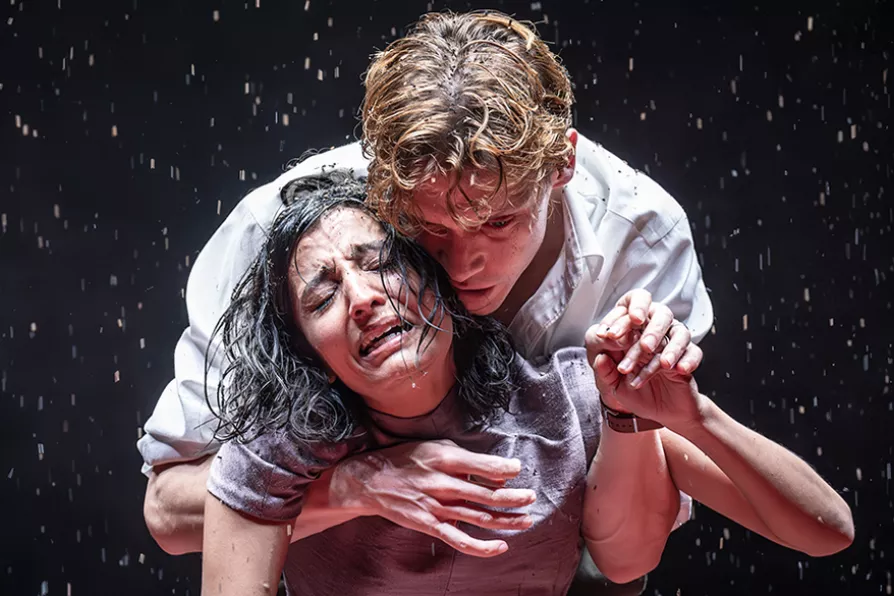TONY BURKE speaks to Gambian kora player SUNTOU SUSSO

 GAME CHANGER: Billy Howle (Jimmy) and Ellora Torchia (Alison) in Look Back In Anger
[Marc Brenner]
GAME CHANGER: Billy Howle (Jimmy) and Ellora Torchia (Alison) in Look Back In Anger
[Marc Brenner]
Roots / Look Back in Anger
The Almeida, London
THE era of the angry young man. The 1950s.
All seems so long ago. But if you’re wondering why to revisit them now, the Almeida will tell you, as they bring us two towering classics tuned to the modern age.
Performed in rep at the Almeida until November 23, Arnold Wesker’s Roots (★★★★) and John Osborne’s Look Back in Anger (★★★★), in symbiosis together, hold an unassailable position in the history of British theatre.

Although this production was in rehearsal before the playwright’s death, it allows us to pay homage to his life, suggests MARY CONWAY

MARY CONWAY is blown away by a flawless production of Lynn Nottage’s exquisite tragedy

MARY CONWAY revels in the Irish American language and dense melancholy of O’Neill’s last and little-known play











